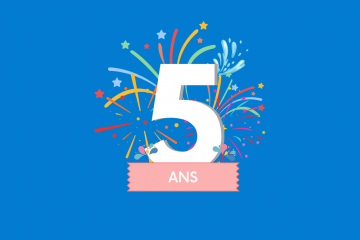You will be reading everywhere that we are going through a “unique time”. Over the past months, companies have had to change the ways they work and become more “flexible”, while employees have had to adapt to telecommuting and organise themselves differently.
As our lives begin to return to normal, we have decided to share the past few months at DONOS with you.
Organisation
As with many people, on 13 March we began a period of working in total lockdown. However, as our colleagues are used to being on the move, they were all already equipped with laptops. This enabled them to be operational very quickly! What’s more, telecommuting was already part of daily life for some members of our team.
In normal circumstances at DONOS, we often travel to meet our clients and to several geographic locations. Right from the beginning, we implemented Slack to facilitate communication within the team. We also had a weekly videoconference meeting and an in-house event so as to meet up in person once a month.
To deal with the situation created by Covid-19, we equipped ourselves with Zoom. This tool has allowed us to conduct our training and meetings, both in-house and externally. We had already used Zoom in the past and liked the how well the bandwidth was managed and how easy it was for guests to join. One of our challenges was using a tool that was easy to install despite the constraints of installing an application client, a browser or other limitations such as the number of participants.
What changed the most?
Our human relationships. We took more time to talk on the phone with our colleagues, partners and clients to find out how they were doing and try to understand the situation their teams and operations were in. In short, lockdown and the slowing of the economy gave us the opportunity to get closer to those we are in contact with on a daily basis and to “humanise” our relationships.
The team during lockdown
In order to stay close and remain motivated, we organised more meetings. Sometimes, up to 3 a week:
- Team Briefings to start off the week
- Our usual weekly meetings (we call them “weeklies”)
- Team Building activities not related to work
Apart from Zoom, one of the other tools we used during this period was: Klaxoon.
Klaxoon was incredibly useful to us when holding our team briefings. It’s a brilliant tool that allows you to conduct quizzes, surveys or brainstormings.
The government and Cédric O (Secretary of State for the Digital Economy) strongly encourages French collaborative solutions platforms to offer promotions during the lockdown period.
We had 3 months free with Klaxoon.
In terms of Team Building, we organised different activities:
- an HR seminar
- a blind test on Spotify
- a poker game on Poker Face (free, via videolink and in a private room)
- an escape game on Happy Kits
- a game of Scattergories…
It’s actually quite amazing how many activities can be organised remotely!
We also created a Spotify playlist with the songs that give us the biggest boost in the morning! Find it here! A way to find out a bit more about each other and to launch our Team Briefings!
Finally, in a new experiment for us, inspired by one of our clients: morning coffees. This is an open Zoom room where you can meet up informally as a substitute for coffee breaks.
An overview of our lockdown
What the DONOS team liked about telecommuting:
- the autonomy in organising our work
- the flexibility in terms of time management
- the time saved not being on public transport
What we missed:
- The social relations – despite the activities organised and the regular contact, we really missed social activity in person
This period actually brought some team members together, thanks to the higher number of conversations by videoconference.
Finally, this lockdown period allowed us to review our organisation and improve our methods of communication and interaction, both in-house and externally.
Thanks to this experience, we were able to really feel the solidarity within the team. We were also able to understand, in a more analytical way, the most essential aspects of our work and our organisation.
This also allowed us to take a step back and adjust our work-life balance.


